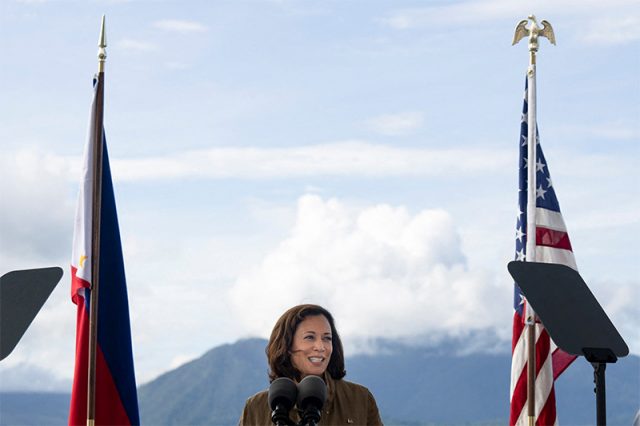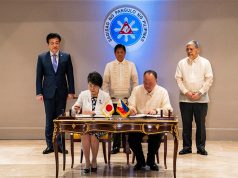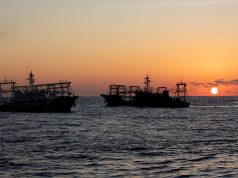
PUERTO PRINCESA, Philippines— Washington will stand by the Philippines in the face of intimidation and coercion in the South China Sea, U.S. Vice President Kamala Harris said on Tuesday while visiting the Palawan island in the disputed waters.
Aboard a Philippine coastguard vessel docked in the Puerto Princesa bay, Harris said the United States and the broader international community “have a profound stake in the future of this region”.
Harris’ Palawan stop was part of a three-day visit to one of the United States’ oldest security allies in Asia, which is also central to its bid to counter China’s increasingly assertive policies in the South China Sea and towards Taiwan.
“We must stand up for principles such as respect for sovereignty and territorial integrity, unimpeded lawful commerce, the peaceful resolution of disputes, and the freedom of navigation and overflight in the South China Sea, and throughout the Indo-Pacific,” she said in a speech.
Beijing claims almost all the South China Sea, which is believed to contain massive oil and gas deposits and through which trillions of dollars in trade passes each year.
A 2016 ruling by an arbitration tribunal in The Hague said Beijing’s expansive South China Sea claims had no legal basis, delivering a victory for Manila.
But the Philippines has been unable to enforce the ruling and has since filed hundreds of protests over what it calls encroachment and harassment by China’s coastguard and its vast fishing fleet.
During her speech, Harris reiterated Washington’s support for the 2016 arbitration ruling, which China said it would not accept, saying the decision “is legally binding and must be respected”.
Diplomatic note
Philippine President Ferdinand Marcos Jr said on Tuesday his country would send a diplomatic note to Beijing following an incident in the South China Sea involving a floating rocket piece.
The incident happened ahead of Harris’ visit, the highest-level trip to the Philippines by a Biden administration official that is seen as part of Washington’s effort to revive ties with Manila, which moved closer to China under former President Rodrigo Duterte.
Marcos said during one-to-one talks with Harris on Monday that the two nations’ strong ties had become even more important, given what he called “upheavals” in the region.
Before boarding the coastguard ship, Harris visited Tagburos, one of Palawan’s many coastal communities where she spoke with local leaders and fishermen, whose livelihoods are threatened by illegal and unreported fishing and climate change.
“Communities like this have seen the consequences, and people here know the impact when foreign vessels enter Philippine waters and illegally deplete the fishing stock, and when they harass and intimidate local fishers,” Harris said in an apparent swipe at China.
The visit comes amid strained relations between China and the United States, particularly over Taiwan, the democratically governed island China has long vowed to bring under its control.
“China consistently believes that communication and cooperation between countries should be conducive to increasing understanding and trust between countries in the region,” Chinese foreign ministry spokesman Zhao Lijian told reporters at a regular briefing.
“We are not opposed to the United States and the Philippines having normal contact, but this kind of contact should not harm other countries’ interests,” he said.
Palawan is about 320 km (200 miles) from the Spratly islands, where China has dredged the sea floor to build harbors and airstrips. Parts of the archipelago are also claimed by Brunei, Malaysia, the Philippines, Taiwan and Vietnam.
—Additional reporting by Yew Lun Tian and Martin Pollard in Beijing; Writing by Ed Davies; Editing by Lincoln Feast and Alex Richardson









